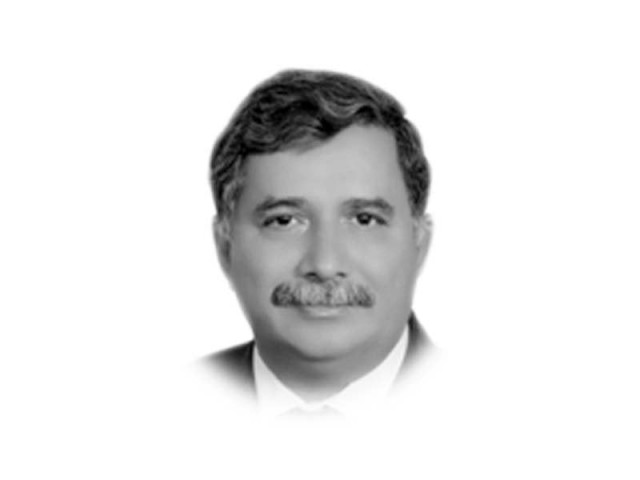Undoing 18th Amendment: opening the Pandora’s box
The issue of fiscal federalism has remained one of the thorniest issues in the history of Pakistan

The writer is a former civil servant and advocate. He heads the Good Governance Forum and can be reached at aashah7@yahoo.com
First, we need to look at the factual accuracy with regard to the mythical premise that the Centre is efficient while provincial governments are inept. Let us use the health sector in Khyber-Pakhtunkhwa as a case study.
Now coming to the subject of health and taking the heath department of K-P as a case study, one can argue that all major hospitals, including the tertiary hospital and healthcare units as well as medical colleges and the medical university, had been established by the province even before the passage of the 18th amendment. Barring the Institute of Radiology and Nuclear and a central dispensary in Peshawar, it is difficult to find other units of the federal government. Therefore, it can safely be said that the medical structure over there is the outcome of provincial governments since the days of the British Raj. In contrast the federal entities such as the Drug Regulatory Authority of Pakistan, with a licensing regime and its drug inspectors, have played havoc with the health of people by allowing every Tom, Dick and Harry to obtain a licence to manufacture drugs. Their drugs are cheap but of substandard quality. Hence, doctors refrain from prescribing them to patients. Therefore, to say that the federal government has played marvels is not supported through empirical evidence. The conditions in PIMS Islamabad are no better than the hospitals in Peshawar such as Lady Reading, Khyber Teaching Hospital and Hayatabad Medical Complex (HMC). PIMS does not even have a proper burns unit whereas the HMC does have a state-of-the-art burns unit. Laudable initiatives of the province such as institutes of kidney diseases, cardiology and child health demonstrate the capacity of the provinces to establish and run any healthcare unit within their available resources.
The second important perspective is constitutional. There is no doubt about the Supreme Court being the ultimate forum for interpreting the Constitution. In this regard, however, the importance of constitutional conventions should also not be ignored. There is a general consensus among jurists that if there is no ambiguity in a law passed by parliament then plain meaning of the statute should be followed. Giving any other twist or putting a spin on a statutory law would amount to encroaching upon powers of the legislature. The constitutional position after the passage of the 18th amendment is clear. Like other pure federations, such as the United States, in Pakistan all residual powers now rest with the provinces. Initially, the subject of health was on the concurrent list which therefore empowered the federal government to deal with health-related issues in the territorial jurisdiction of the provinces. With the abolition of the concurrent list, only those departments remain with the federal government which were on the federal list while all residual subjects were passed over to the provinces. Just as the federal government cannot establish a school or a hospital in a foreign country without the consent of the government of that country, it cannot deal with a subject not mentioned in the federal list within the territorial jurisdiction of the provinces. Its jurisdiction is restricted to the federal area alone.
The third important perspective is political. The constitutional history of Pakistan suggests that the breakup of Pakistan in 1971 was the result of denial of rights to Bengalis and negation of the spirit of federalism by the pro-Centre lobbyist on one pretext or the other.
We all should be mindful of the fact that the 18th amendment is a landmark achievement cementing the bond among all federating units and has helped in forging national integration. It is Pakistan’s most potent defence against separatists and rebels. It represents national consensus which was achieved after months of deliberations among representatives of all political parties of the country. Rolling back or curtailing the powers of the provinces will only strengthen separatist tendencies in smaller provinces.
In this context, it may be mentioned that a clear road map was given for transferring of departments with assets to the provinces. Going back on commitments made under the 18th amendment may be considered a breach of trust, further widening the trust deficit. It is hoped that the queries raised by the Supreme Court were only meant to elicit answers to some relevant questions and the apex judiciary also shares the democratic aspirations of the people of the federating units, smaller provinces in particular. Any attempt to tinker with a settled issue would amount to opening the Pandora’s box again.
Published in The Express Tribune, January 16th, 2019.
Like Opinion & Editorial on Facebook, follow @ETOpEd on Twitter to receive all updates on all our daily pieces.















COMMENTS
Comments are moderated and generally will be posted if they are on-topic and not abusive.
For more information, please see our Comments FAQ